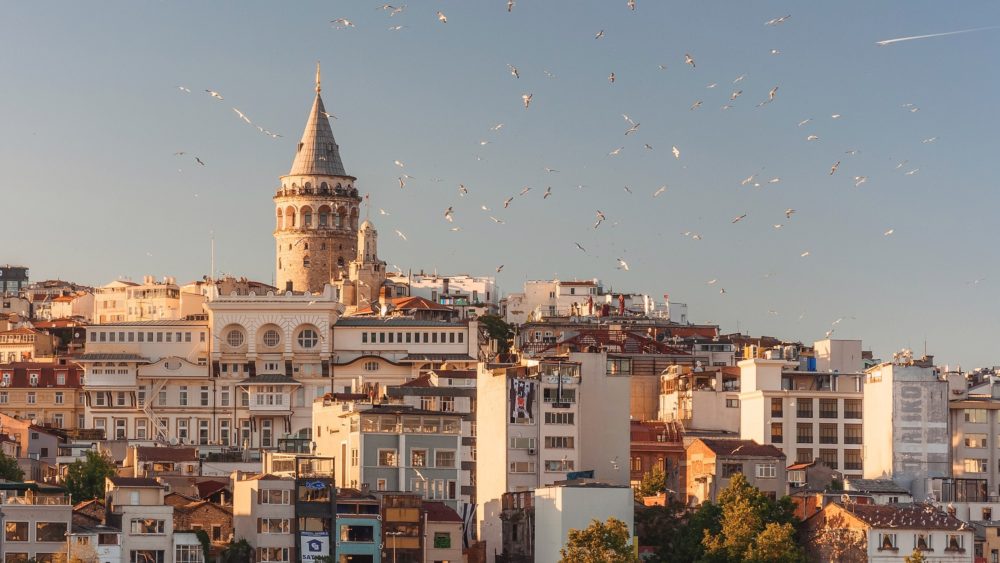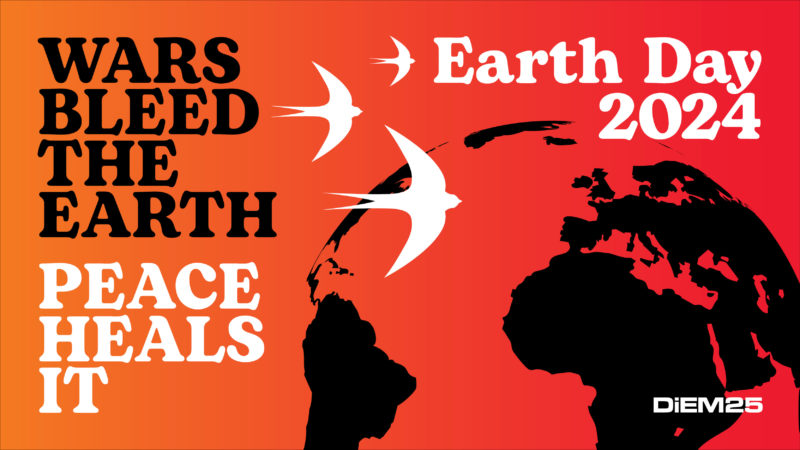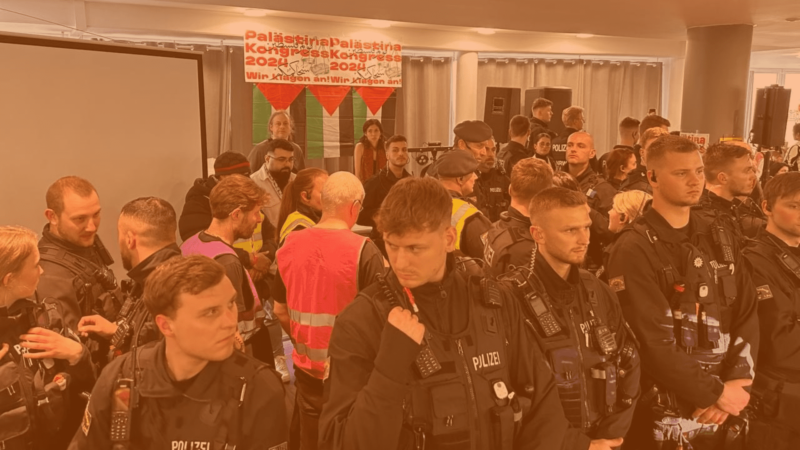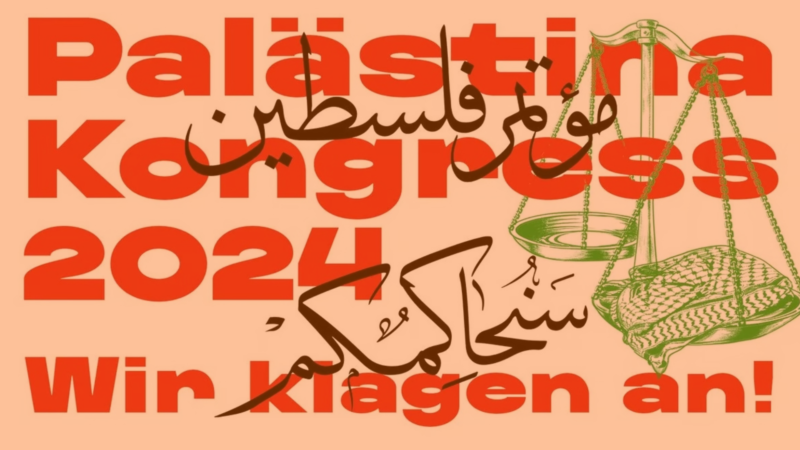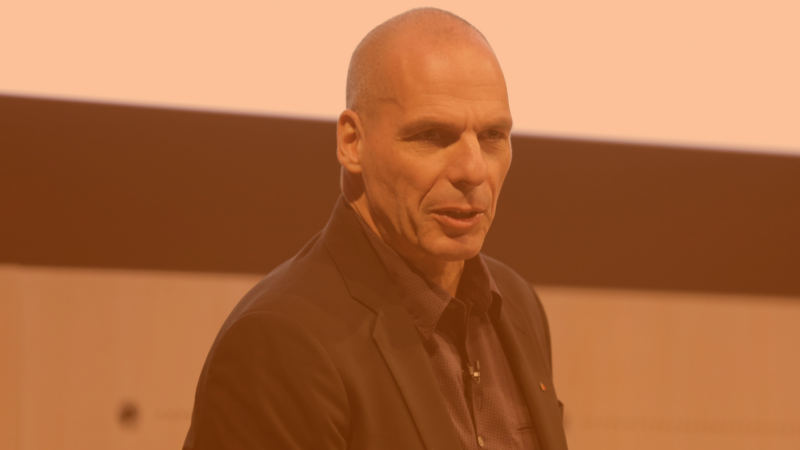We sat down with Turkish art curator Beral Madra to discuss Turkey, the EU and DiEM25’s quest for democracy. You can read the full interview below.
For people who aren’t familiar with the situation in Turkey, how would you describe it today? What are the key issues that people are struggling with?
Today, to understand Turkey’s and Islamic countries’ political, social and cultural climate one must read Iranian thinker Daryush Shayegan’s legendary book ‘Le regard mutilé, Schizophrénie culturelle’, in detail. This mutilated consciousness, or cultural schizophrenia, has three components: the unfinished fall of the Ottoman Empire, Modernism and the Foundation of the Republic and Political Islam combined with Neo-capitalism. These transformations have always been agitating for the masses. For conservatives, in particular, these transitions have been diffcult to get used to.
People of my age have seen the rupture of Modernism and three military coups, in 1960, 1970 and 1980. The generations that came after experienced a split between secular and religious ideologies. This has been a long struggle, and in order to resolve it we must move to a solid democratic order.
Can you tell us a bit more about the ‘mutilated consciousness’ you mention? How is it impacting how people relate to one another in the country?
Shayegans’s book is about the Modernist, colonialist and imperialist interactions between the West and the Islamic world. He proclaims that the Islamic world remains in conflict with the scientific era of the 20th century. As Shayegan puts it: our predicament is that our consciousness still operates at the magical level of symbols, while our ideas have their origins in the epistemic mutations of the new age.
Many Islamic countries have incorporated Modernist systems. And ideas have changed, but the attitudes of the masses have failed to keep pace with Western enlightenment. This is true even for Turkey, which entered into Modernism earlier than many other Islamic countries, with a determined Modernisation program. It’s also worth pointing out that the interventions of the EU, Russia and the US over the last decades have aggravated the split between laic and religious communities. For example, in the Middle East, Iran, Afghanistan, Syria, and so on.
What needs to happen for Turkey to move to a solid democratic order? What are the steps that need to be taken?
Since the 1950s many steps have been taken to reach a solid democratic order. During the 1950-2000 democratisation process people learned about democracy. This allowed them to enable it every time it was disrupted by counter-democratic movements.
For the moment, opposition parties should unite and ensure a transparent election as soon as possible. And the people should focus on two goals. First, to understand and internalise the benefits of a 21st century democracy. And, second, to support opposition parties in the election process.
Can you point to any positive developments over the last years?
I will try to be optimistic and say that there are positive developments. For example, there’s the attitude of opposition parties to establish alliances, and also their wish to create a government with democratic goals. Not to mention that the establishment of democracy is on the agenda of at least 50% of the population.
Another positive development has been the continuous information flow between the destructive economic and social realities, despite the various bans. Truth pursues its war against Post-truth. For example, people are aware of femicide and child abuse thanks to the continuous work and declarations of NGOs and social media.
According to the 2019 report of the We Will Stop Femicide Platform, 115 of the 474 femicides committed in 2019 were recorded as suspects. The culprits could not be found. According to the 2020 report, 300 women were killed by men in Turkey in 2020. And 171 women were found suspiciously dead. Femicide in Turkey is based on the good-old patriarchal order with its family honour absurdity. It is based on an unacceptable misinterpretation of the Quran. And on the persistent adoption of a male-dominated state-government tradition. Equality is not internalised; men are superior creatures!
Many international associations with local branches operate in Turkey. They constitute the most important capacity of resistance against this fatal misconduct. In my professional domain contemporary artists and art experts, as well as cultural associations, are courageously involved in truth-seeking productions. Women artists in particular are at the forefront of this quest for democracy.
What has been the impact of the ruling power on the country over the last 20 years?
Since the foundation of the Republic in 1923 there has always been a conflict between religious-based conservatism and secularism. However, this conflict always resulted in the supremacy of the latter. During each coup the then frail democracy, founded after World War II, lost ground. Later, with the 1980 coup the religious vein became stronger.
But a new hope for real democracy emerged in the 1990s with Turkey’s accession process to the European Union. This was a kind of post-modern utopia greedily fed by neo-capitalism. I think that the problem in this rapid transition, from the four decades-long military tutelage and state-capitalism, was not to face the political sins and mistakes of the past. And not to settle accounts with all the political killings and bloodshed in the second half of the 20th century. Not confronting the atrocities of the past had a very harmful effect.
Today’s ruling power used this desire to achieve ‘democracy’ as soon as possible. And in 2002 began introducing numerous reforms with regard to the conditions of EU accession, the rule of law and the respect for human rights. This is what I mean with Post-modern utopia.
Gradually, from 2008 on, the real goals and objectives of the government surfaced. Islamic sects and congregations became visible and active in social life. And eventually played a greater role in governmental and bureaucratic affairs. Religious sects reign supreme in the education system. Despite that, scandalous child abuse is an everyday issue in their institutions.
This controversial development towards an Islamic Republic reached a turning point on July 15, 2016. The date that marked the military coup that prepared the ground for the current regime. During the following two years of state-emergency, prisons were filled with over 100,000 so-called Fetö followers. An in June 2018, the constitution was changed with the promise of a new democracy. But instead parliamentary democracy was replaced by a presidential system with extended presidential powers. Today this extension entered a rather unbearable process. So it feels like people have been living a deception!
There is a great separation between the religious and secular populations. Between ruthless mediocrity and the enlightened masses. Between ethnic majorities and minorities. Moreover, racial discrimination towards Kurds, Alewites, Jews and Armenians has grown stronger. This has been aggravated by the depressive economic conditions felt since 2018.
What hope do you see for the future of Turkey and its people?
The future depends on several developments. First, on an honest and unharmed election process with the volition of opposition parties. This is necessary in order to save Turkey from the worst possible fate. I mean that they should not simply seek more votes, but unite around the goal of achieving democracy.
Secondly, the hope that society has learned its lesson from what has happened to it in terms of economy and loss of basic human rights. Even if desired results are gained, the rectification and healing of state ministries and agencies will be a long process.
My hope is for a radical change in the EU’s political approach to Turkey. The EU should give up its irresponsible attitude towards internal developments in Turkey and support the establishment of democracy. If the EU evaluates Turkey’s situation accurately, it will realise that it’s in its own interest for there to be democracy in the country. It could almost be a cheerful future.
How likely do you think the EU is to change its approach to Turkey?
It is in the EU’s interest for Turkey to achieve democracy. Europe is surrounded by restless and threatening countries. Just look what happens. People from war-torn countries have been coming to Europe in large numbers. This has been going on for over ten years. Europe cannot stop it even if the EU pays Turkey millions of Euros to keep people away from the borders. The ugliest part is that the human smugglers who drive these people make millions from this ‘business’. So, again, it is the big business of zombie-capitalism. Within this dystopic movement Turkey is the key territory. A solid democracy is therefore an insurance!
Another critical issue is the length and environmental importance of the Aegean and Mediterranean Turkish sea coasts. This is a crucial reason for the EU to have constructive communication and cooperation with Turkey.
Turkey has huge environmental problems. Two nuclear power plants under construction. The so-called canal from the Black Sea to the Marmara Sea. Hydroelectric power plants that drain rivers and lakes, which are also troublesome for Europe. So I hope that the EU will put all these issues on their agenda and finally adopt a political approach of supporting democratic and environmentally-conscious goals.
What needs to happen in order to ensure an honest election process?
In 2021 the Turkish economy suffered a complete collapse and this continues to date. Experts say that the true inflation is 90%! According to the calculations of the Consumer Rights Association, 16 million people in Turkey live in hunger and 50 million in poverty. The number of hungry and poor people amounts to 66 million. I think that as we head towards elections, people will realise this fact and demand their rights. For a couple of months workers have been resisting through various protests. This is a positive sign.
How can movements like DiEM25 succeed in Turkey?
I am a member of DiEM25 with the hope that DiEM25 will be the voice of Turkey in EU politics. Democracy pursuers in Turkey are well trained to establish NGOs or reformative movements. The vast majority work in political parties and NGOs that defend fundamental rights. DiEM25 explains the political, economic, cultural and environmental faultlines of today’s global world order. It invites people to overcome these issues and move towards a more comfortable, healthy, creative and sustainable life. This is what we need today.
What do you think DiEM25 needs to do in order to influence society and politics in Turkey?
During 2019 DiEM25 was quite active in Turkey. It had quite a lot of followers and members in Istanbul, Ankara and Izmir. However, the pandemic period had inevitable negative effects, even if online communication continued as much as possible. Turkey’s population is 84 million with 50,13% men, % 49,87 women and estimated 5 million refugees or emigrants! This population is not homogenous; religious, ethnic, ideological fissures are immense.
As you can imagine, gaining political visibility within this heterogeneous fabric will not be easy. In order to inform people, gain members and be effective, we need well-planned strategies. Right now the most important strategy is to persuade groups ideologically close to DiEM25.
Are there any progressive movements and/or political parties in Turkey that DiEM25 should be in touch with?
Elections are set to happen rather soon, probably around Autumn 2022. This means that DiEM25 has a serious task at hand. Ideally it should communicate and collaborate with opposition parties, as long as they have democratic goals. And DiEM25’s manifesto should also be presented to them.
However, after this Machiavellian suggestion, the reality is disappointing. Look to Wikipedia. If you look at the chart you’ll see that most parties are right-wing, centre-right or centre-left. Only the Worker’s Party seems radical enough. But I have no idea if this party is aware of DiEM25. In tune with the socio-political-psychological realities in the country, the political party map is full of 20th century Modernist ideologies. The question is: is it easy to guide these parties to the 21st century and explain the forthcoming dangers highlighted in DiEM25’s manifesto?
Beral Madra is an art critic, curator, honorary president of AICA Turkey and member of DiEM25’s Coordinating Collective
Photo by Anna Berdnik on Unsplash
Do you want to be informed of DiEM25's actions? Sign up here






